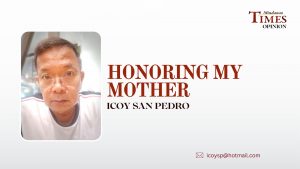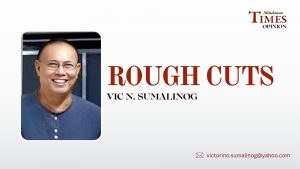BY JAIZA EUGENIE RACOMA & CHARYL ALIBANGO
THE PHILIPPINES proudly calls itself a democratic nation. Yet for many of us, the freedom to speak our minds feels less like a right and more like a gamble. Time and again, we have learned this the hard way. We raise our voices, post our opinions, and call for justice, only to be met with suspicion, mockery, or subtle intimidation.
In barangay halls, online spaces, or even within our circles, free speech often comes with an unspoken warning: “Say what you want, but be ready for the fallout.” The irony cuts deep. How can we claim to be free when fear silences so many? Historically, Filipinos have been expressive, passionate, and politically engaged. Our voices echo through art, literature, music, and public discourse.
Our words have always carried power from the anti-colonial revolutions to the People Power movement. But today, a creeping culture of self-censorship threatens this proud legacy. The fear of being misunderstood, attacked, or ridiculed discourages many from speaking honestly. Even with freedom of expression written into our Constitution, there is a growing sense that speaking up is no longer worth the risk.
Let us be clear. Freedom of expression must come with responsibility. Our voices should inform, challenge, and inspire, not incite hatred or harm. The old saying goes, “Your freedom ends where another person’s rights begin.” This is not a call to silence ourselves, but to speak with conscience. There is a big difference between calling out injustice and using speech to wound. The goal is not just to be heard, but to be understood and to bring light, not just heat.
The real threat to democracy is not loud opinions. It is the quiet that follows when people stop responding. In the Philippines, censorship is not always created by law. More often, it grows from within. From the fear of backlash by neighbours, classmates, online trolls, or even family members who urge us to stay quiet “for our good.”
Over time, this pressure plants doubt: Is speaking worth speaking? Will anyone listen? But here is the truth. Silence never changed anything. To stay quiet in the face of abuse, corruption, or injustice is to become complicit in it. To look away when others suffer is to add to their burden. Real change needs a brave voice, not necessarily loud, but a clear, calm, and committed one. We live in a time where lies travel faster than facts. Where outrage is easy, but empathy is rare. That makes our responsibility even more important. We must speak not just to react, but to reach. Not to divide, but to uplift.
Not to overpower others, but to empower those unheard for too long. In a nation where truth often whispers while fear speaks louder, the challenge is simple but powerful: speak anyway. Speak with purpose. Speak with care. Speak not to destroy but to demand dignity. Freedom is not only about having a voice; it is about having the courage to use it, even when silence feels safer.
And maybe, just maybe, that is how real change begins.


